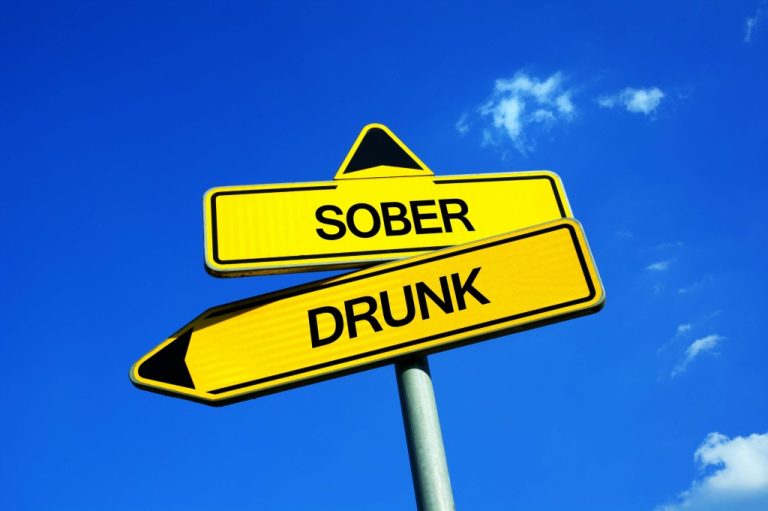In addition to these symptoms, delirium tremens can also have other effects. If you drink several alcoholic beverages per day and you are thinking about quitting, you need to discuss the process of quitting with a healthcare provider. You can work together to create a safe schedule for you to gradually discontinue alcohol under What is Delirium Tremens medical supervision.
The history of prolonged alcohol use makes a person more susceptible to DTs. Besides, if you’ve had what is Oxford House previous episodes of severe alcohol withdrawal or delirium tremens, it may happen again if you don’t stop drinking. In some cases, when people have issues with substance abuse and certain medical conditions (heart and liver problems, old age), DT may impact them even more.
Possible Complications

The benzodiazepines used to treat DT are usually diazepam, chlordiazepoxide and lorazepam. Folic acid is an important cofactor for enzymes used in the production of red blood cells. Because of its rapid onset, prolonged duration of effects, and high therapeutic index, diazepam is the drug of choice. Volumes of literature exist regarding the use of diazepam for ethanol withdrawal.
Psychological rehabilitation for Delirium Tremens patients
Delirium tremens is a form of alcohol withdrawal that causes severe and life-threatening symptoms. People who are planning to quit drinking alcohol after a period of dependency should always attend a professional detox program where they can receive proper treatment. Recognizing the symptoms of delirium tremens (DTs) is critical, as it is a severe and potentially life-threatening complication of alcohol withdrawal. Some of these delirium tremens symptoms can escalate quickly without proper medical attention. The timing can vary based on factors such as the individual’s drinking history, overall health, and the presence of other medical conditions. DT’s develop in individuals who suddenly stop heavy drinking after prolonged alcohol intake.
How to Prevent Delirium Tremens?
If youdrink alcohol heavilyfor a long time and then suddenly stop, you are at risk of a condition known as alcohol withdrawal syndrome, or AWS. Furthermore, some AWS symptoms will show up within a few hours, and some may take days to show up. The most severe form of AWS is DT, which combines serious psychological and nervous system changes. Delirium tremens was first observed by medical professionals in the early 1800s. Shortly thereafter, it was classified as a clinical disorder mainly affecting individuals who misused alcohol.
Housekeeper Mrs. Abel provides Raffles’ final night of care per Bulstrode’s instruction whose directions given to Abel stand adverse to Tertius Lydgate’s orders. One of the characters in Joseph Conrad’s novel Lord Jim experiences “DTs of the worst kind” with symptoms that include seeing millions of pink frogs. These symptoms are characteristically worse at night.12 For example, in Finnish, this nightlike condition is called liskojen yö, lit.
- With over 60 care locations throughout the region, Porch Light Health makes accessing vital treatment services convenient and accessible.
- You’ll be asked about your drinking habits, past instances of alcohol withdrawal, and any mental health issues.
- Alcohol depresses the central nervous system, and the body compensates by increasing excitatory activity.
Physiological MechanismLong-term heavy alcohol use chronically suppresses excitatory neurotransmitters (like glutamate) and amplifies inhibitory ones (like GABA). Once alcohol is abruptly stopped, the body experiences a rebound over-activity in excitatory pathways. The more severe the dependence, the more intense the rebound effect can be, culminating in DTs for certain individuals. At NuView, we integrate expertise in behavioral therapy, mental health, and substance use treatment to create a customized recovery plan tailored to your unique needs. However, the main reason for delirium tremens is alcohol withdrawal, which itself results from alcohol use disorder. So, unless alcohol use disorder is not addressed, DTS cannot be completely treated.
The Role of Medical Detox in Treating Delirium Tremens
When someone who has been drinking heavily for weeks, months, or years stops or suddenly reduces their alcohol intake, they might experience a range of symptoms known as alcohol withdrawal. This happens because the body gets used to having alcohol around, and when it’s suddenly removed, the body needs time to adjust. If you or someone else experiences symptoms of delirium tremens—tremors, confusion, changes of consciousness, or shaking—then it’s important to seek medical attention right away. Medical care may include sedatives and treatments for the effects of delirium tremens. Delirium tremens (DTs) is a severe form of alcohol withdrawal that can be life-threatening. It typically occurs after heavy, prolonged drinking is abruptly stopped.

Conventional Medical Treatments
This phenomenon that happens with regular alcohol use is referred to as tolerance. Let Little Creek Recovery Center guide you down the right path to recovery, personal growth, and long-term sobriety. Unfortunately, even with the proper care, DT is fatal in up to 15 percent of people. The Recovery Village Columbus Drug, Alcohol and Mental Health Rehab specializes in compassionate, evidence-based care tailored to your needs. If you or someone you love is experiencing signs of DTs, don’t wait.
Never disregard professional medical advice or delay in seeking it because of something you have read on this website. In the event of a medical emergency, call a doctor or 911 immediately. This website does not recommend or endorse any specific tests, physicians, products, procedures, opinions, or other information that may be mentioned on the Site. Reliance on any information provided by this website is solely at your own risk. Recreate Ohio delivers tailored detox programs aimed at aiding those experiencing alcohol withdrawal.
Alcohol withdrawal happens when someone with moderate to severe alcohol withdrawal reduces drinking or stops drinking entirely. When the body, especially the central nervous system (CNS), gets used to a certain level of alcohol, it works hard to keep the body awake and in a functioning state, as alcohol is a depressant. Now, when this alcohol level is reduced or completely stopped, the CNS cannot regulate immediately, and there is overactivity, leading to alcohol withdrawal. Mental and psychological symptoms of delirium tremens usually occur within 2 to 4 days after ceasing alcohol intake. The condition is marked by severe confusion and disorientation, which can be disconcerting for those affected.
